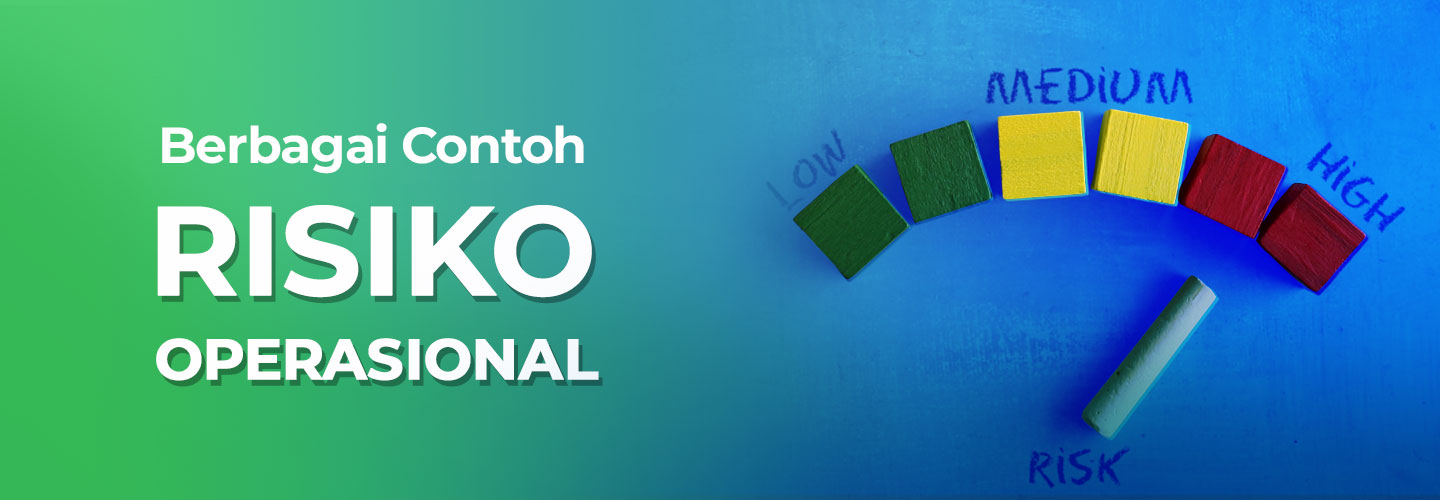Operational Risks, its Causes, and its Impacts

Basically, a business must be managed and run with careful planning. As a business develops, there will always be risks that arise and are anticipated. For this reason, every business owner must have good risk management.
Even though it has been arranged in such a way, the causes of risk may come at unexpected times. This business risk refers to all things that can affect a company's finances. To prepare risk management well, you need to know the causes of risk and prepare for prevention.
Understanding Operational Risk
Operational risk is the risk of loss caused by defects or failures in processes, policies, systems, or events that disrupt business operations. This includes employee errors, criminal activities such as fraud, and physical events that can trigger operational risks.
Most organizations accept that every process and the people involved in it will experience errors and disrupt company operations. In evaluating operational risks, practical remedial steps must be emphasized to minimize monetary losses, competitive losses and business failure.
While it's impossible for small business owners to protect their companies from risk, there are steps they can take. Purchasing small business insurance or entering into a hold harmless agreement becomes an important part of a risk management strategy. This helps reduce the impact on your business operations if a disaster occurs.
Examples and Causes of Operational Risk
To be able to handle operational risks with the right solutions, identify each cause and example of risks that occur in the field. This will make it easier for a business to prepare appropriate prevention and treatment. The following are the causes of operational risks that often occur.
1. Human error
These errors represent the most common and significant risks for organizations or individuals. This type of error occurs when incorrect input is caused by human error. The reasons that arise can vary, including incomplete information, inconsistent processing, input errors, and more. However, such processing errors can have a serious impact on the output and may also cause losses.
2. Technical error
Even though everything is perfect, sometimes there are system issues such as connectivity, system crashes, and calculation errors by the app. Occasionally, the output received may differ from the expected results due to unknown technical defects.
3. Uncontrollable events
This includes the impact of the external environment such as political scenarios, weather changes, syndromes affecting living creatures, outdated technology, etc. This affects processor performance and quality and compromises output.
4. Intentional deception
When a deliberate conflict of interest has emerged, this results in illegal profits for the traffickers. Most organizations have clauses in their policies that employees must comply with in a way that combats conflicts of interest. However, companies have to bear monetary losses and sometimes irrecoverable defamation if such an event occurs.
5. Gaps in the flow
Information lost in a business flow is sometimes caused by data limitations or slow data. In cases like this, the output resulting from operational processes will be affected. The desired production process can endanger a business process.
Impact of Operational Risk
The operational risk causes mentioned above can result in one of the following outcomes:
- Interruptions, interruptions or failures throughout the company
- Loss of system or data control
- Financial losses, including denial of insurance claims
- Safety hazard
- Damage to company reputation
- IT infrastructure damage
- Customer turnover
- Employee turnover
- Legal liability or regulatory fines for losses caused by employees intentionally or negligently
- Legal responsibility or fines according to regulations for losses caused by external criminals
- Competitive weaknesses over other business competitors
Responsibility for reporting an operational risk incident lies with the individual who identified or discovered the incident. Through the CBM Operational Management program, managers can find out how to increase opportunities through optimizing existing resources. This can be used to mitigate damage and overcome the main causes of operational risks that occur.